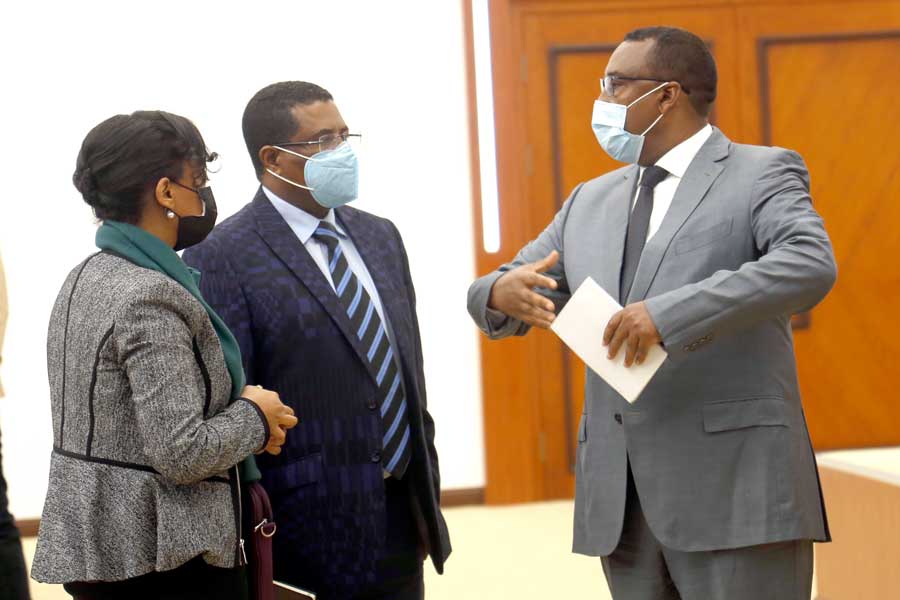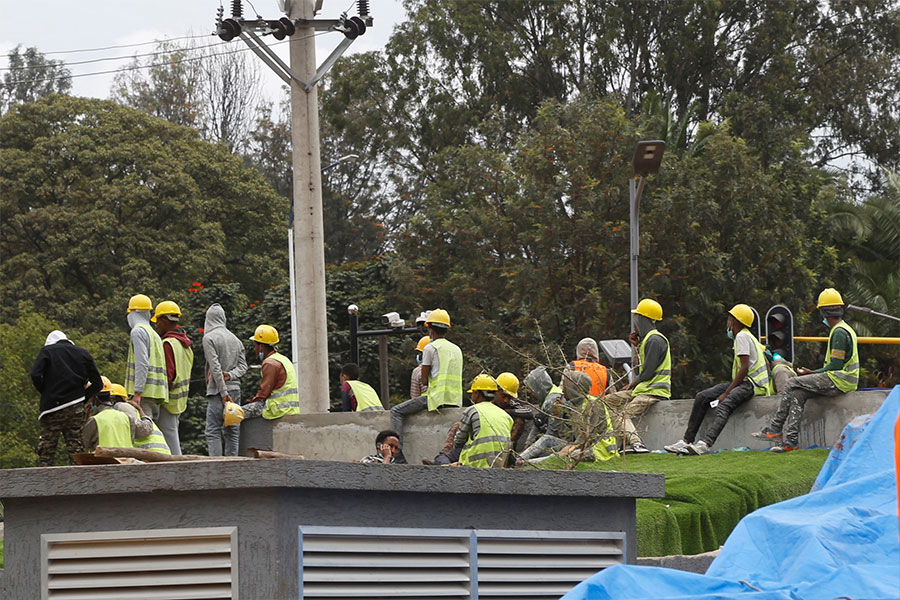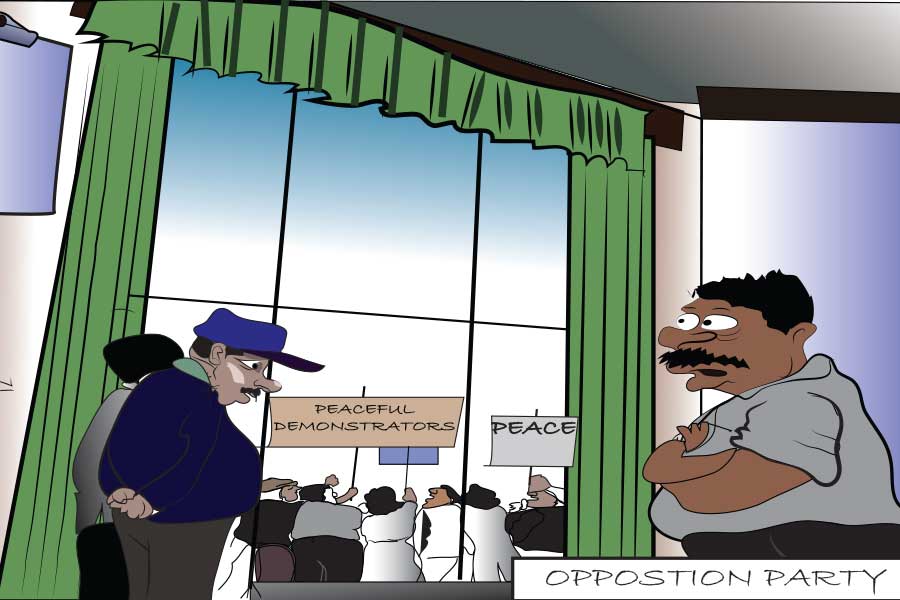
Commentaries | Mar 16,2024
Mar 27 , 2021
By Asegid Getachew
The pandemic is tightening its firm grip on the world. Every country, be it those with advanced healthcare systems or otherwise, is overwhelmed by the enormity of the devastation caused by the raging virus. The pandemic has now widened its reach and impact. Epicentre after epicentre, it has claimed the lives of many and disrupted the livelihoods of multitudes.
The number of people infected by the virus has surpassed 120 million, and those who have succumbed to it are close to reaching three million. In Ethiopia, critically sick patients from COVID-19 have for the first time reached over 600, with over 2,600 killed and around 189,000 reported cases.
A year into the pandemic, we linger on with a mixed feeling. On the one hand is the feeling of hope that help is coming. On the other is fear and despair that some phenomenon may see us pulled back into a tragic past.
The good news first. Countries that were severely affected by the pandemic, except Brazil, are faring better now. Daily infection rates, hospitalisation and deaths are falling in the United States, United Kingdom and, to a certain extent, India. The drastic lockdown, social distancing and vaccine administration measures in these countries seem to have paid off.
The other commendable achievement comes from the scientific community. We have witnessed the conception, development, production and rollout of COVID-19 vaccines in record time. These will help nations immunise their citizens against the virus and attain herd immunity.
But there is bad news that could overwhelm the improvements that have been attained. The first is the surfacing of new variants here and there. They have been identified in South Africa, Brazil and the United Kingdom, for instance, and have made it across much of the globe. Some of these variants could be resistant to existing vaccines, according to health professionals, requiring additional time, energy and financial resources to control them.
Another concerning issue is vaccine nationalism, which is a selfish effort by affluent nations to hoard vaccine products and inputs until their populations reach herd immunity.
“Instead of working together to craft and implement a global strategy, a growing number of countries are taking a 'my nation first' approach to developing and distributing potential vaccines or other pharmaceutical treatments,” an article in the Harvard Business Review, headlined “The Danger of Vaccine Nationalism,” argues.
As a result of vaccine nationalism, less affluent countries, especially those in Africa, are getting vaccine doses way below the amount they need to achieve herd immunity.
“Rich nations have vaccinated their citizens at a rate of one person per second over the last month,” says an Oxfam report from March 10, 2021. “While more poor countries will see the arrival of doses in the coming days from the World Health Organisation’s [WHO] COVAX facility, the amounts available mean only three percent of people in those countries can hope to be vaccinated by mid-year, and only one fifth at best by the end of 2021.”
In light of a highly transmissible and mutating virus, such an approach will only work at the peril of the entire world as no one can claim safety until everybody else is safe.
Pandemic fatigue, defined by the WHO as “demotivation to follow recommended protective behaviours, emerging gradually over time and affected by several emotions, experiences, and perceptions,” also requires attention. After being through several lockdowns, social distancing restrictions and mask wearing, people are exhausted. They simply, regardless of the consequence, want to socialise as they did before the pandemic.
If these adverse effects are not harmful enough, then there is unfounded suspicion over the vaccine's effects. The reason might be disinformation or cultural and psychological preferences. However, the effect is dreadful – a decision by some individuals not to get vaccinated will leave them and others at risk of catching the virus.
No doubt, there is a light at the end of the tunnel, but it could be extinguished by darkness unless efforts are made to control the potential effects of vaccine nationalism and pandemic fatigue. From governments to civil societies, everyone has to see to it that social distancing, mask wearing and other COVID-19 appropriate norms are strictly adhered to and that the public is aware that the battle is not over.
PUBLISHED ON
Mar 27,2021 [ VOL
21 , NO
1091]


Commentaries | Mar 16,2024

Fortune News | Aug 01,2020

Fortune News | Jul 06,2025

Viewpoints | May 23,2020

View From Arada | May 11,2024

Covid-19 | Jan 23,2021

Radar | Oct 09,2021

View From Arada | Feb 16,2019

Fortune News | Nov 30,2019

Editorial | Sep 28,2019

My Opinion | 131981 Views | Aug 14,2021

My Opinion | 128369 Views | Aug 21,2021

My Opinion | 126307 Views | Sep 10,2021

My Opinion | 123925 Views | Aug 07,2021

Dec 22 , 2024 . By TIZITA SHEWAFERAW
Charged with transforming colossal state-owned enterprises into modern and competitiv...

Aug 18 , 2024 . By AKSAH ITALO
Although predictable Yonas Zerihun's job in the ride-hailing service is not immune to...

Jul 28 , 2024 . By TIZITA SHEWAFERAW
Unhabitual, perhaps too many, Samuel Gebreyohannes, 38, used to occasionally enjoy a couple of beers at breakfast. However, he recently swit...

Jul 13 , 2024 . By AKSAH ITALO
Investors who rely on tractors, trucks, and field vehicles for commuting, transporting commodities, and f...

Jul 5 , 2025
Six years ago, Ethiopia was the darling of international liberal commentators. A year...

Jun 28 , 2025
Meseret Damtie, the assertive auditor general, has never been shy about naming names...

Jun 21 , 2025
A well-worn adage says, “Budget is not destiny, but it is direction.” Examining t...

Jun 14 , 2025
Yet again, the Horn of Africa is bracing for trouble. A region already frayed by wars...

Jul 6 , 2025 . By BEZAWIT HULUAGER
The federal legislature gave Prime Minister Abiy Ahmed (PhD) what he wanted: a 1.9 tr...

Jul 6 , 2025 . By YITBAREK GETACHEW
In a city rising skyward at breakneck speed, a reckoning has arrived. Authorities in...

Jul 6 , 2025 . By NAHOM AYELE
A landmark directive from the Ministry of Finance signals a paradigm shift in the cou...

Jul 6 , 2025 . By NAHOM AYELE
Awash Bank has announced plans to establish a dedicated investment banking subsidiary...